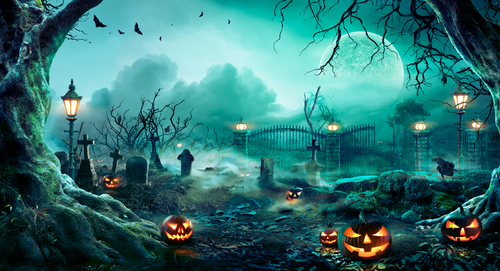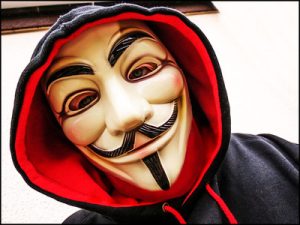
A brief history of why we celebrate ‘Halloween’

Image credit: Evgeny Atamanenko/Shutterstock.com
Unlike many old traditions, the custom of celebrating Halloween is actually a growing trend across the world. Observance of the day occurs primarily in those regions of western civilisation. However, the nocturnal ritual just keeps on spreading and growing. We can primarily attribute the growth of Halloween to the influence of America. There’s no doubt clever marketing has helped its rise but the fact is that it’s also a lot of fun.
Halloween is a celebration that takes place on the night of the 31st of October. It generally entails groups of children dressed in fun scary costumes roaming their own neighbourhood, demanding “trick-or-treat” at the door. Householders are then expected to hand over a ‘treat’ in the form of chocolates and sweets. This ensures a ‘trick’ will not be played on them by the gathering of young fancy-dressers. However, of late, adults have also got into the act. It’s no longer an unusual sight in the UK to see grown-ups donning appropriate fancy dress for a night on the town during Halloween.
The Ancient Festival of Samhain
The origins of Halloween can be traced back to the ancient Celtic festival of Samhain. The Celts were an ancient people who settled in Britain, Ireland and northern France between the 8th and 5th centuries BC. Essentially they were a farming and agricultural community whose calendar was very much ruled by the seasons. Samhain marked the end of summer and the growing season, and the beginning of the dark cold winter. To the pagan Celts, the Festival of Samhain symbolised the boundary between the world of the living and that of the dead.
On the night of 31st October, large bonfires were lit by the Celts in every village in order to ward off evil spirits. These spirits were thought to be able to revisit the mortal world on that one night of the year. Druids and Celtic priests ensured that a hearth fire was lit at each house from the glowing embers of the sacred bonfire. This ensured the protection and warmth of the whole community during the long winter months.
Christianity was first introduced to Britain towards the end of the 1st century by the Romans. However, it remained very much a minority religion until the arrival of Saint Augustine from Rome in AD 597. As Christianity eventually took hold, so did observance of its festivals, such as ‘The Feast of All Martyrs’. This later became known as The Feast of All Saints, remembering those who died for their religious beliefs. The day was originally celebrated on 13th May. However, in AD 844, Pope Gregory IV, decided that it should be celebrated on the 1st of November. This was thought to be an attempt by the pope to replace the pagan Samhain festival with a church-approved celebration.
All Hallows Eve to Halloween
In 1484, Pope Sixtus IV established the 1st November as a holy day of obligation. Thus, the night of 31st October became known as ”All Hallows’ Eve”. Later the name was shortened to ”Hallows’ Eve”, still later to ”Hallowe’en” and then to the more popular form of today ”Halloween”. Now, it’s not recognised as a religious day at all. Rather it’s a time of make-believe when supposedly the spirit world can make contact with the living.
In Britain, Halloween has traditionally been celebrated by children’s games. These games included; bobbing for apples, telling ghost stories, and carving scary faces into hollowed-out turnips. The faces would be lit-up by a burning candle placed inside the hollow turnip. With a nod to the past, the lit candle was meant to ward off evil spirits. However, since the 1980s, the traditional British Halloween has become increasingly Americanised. Today, pumpkins have replaced turnips, fancy dress is almost compulsory, and the practise of “trick-or-treating” commonplace.
Header image credit: Romolo Tavani/Shutterstock.com
If you’ve enjoyed reading this post, why not check out more of the articles in the series by clicking the following link: Why do we…….?





